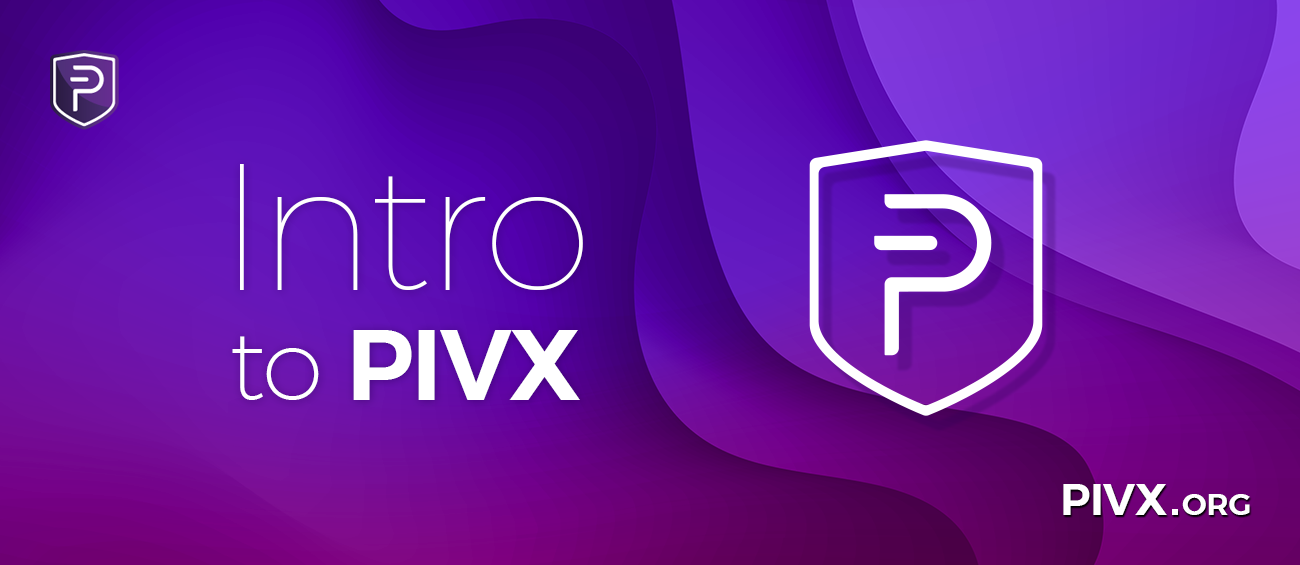
Your PIVX Journey Begins Here…
PIVX is a DAO-run, open-source cryptocurrency that uses advanced cryptographic protocols to protect financial data. Hinged on the ethos that privacy is a non-negotiable basic human right, this blockchain project is building a future of circular economies powered by its native PIV coin.

What is PIVX?
PIVX is a leading player in the privacy coin space. Originally launched as a community-driven project in January 2016, PIVX is the first Proof-of-Stake (PoS) network to implement zk-SNARKs (Zero-Knowledge Succinct Non-Interactive Arguments of Knowledge).
Fun fact: PIVX began as a fork of DASH but transitioned to PoS in August, 2016. It was originally called Darknet (DNET). The project has continued to evolve over the years.
What is a Privacy Coin?
A privacy coin is a type of cryptocurrency specifically designed to enhance the anonymity and privacy of its users. Unlike more transparent cryptocurrencies where transaction details are publicly recorded, privacy coins employ cryptographic methods like ring signatures and zero-knowledge proofs to obscure crucial information. Alongside PIVX, notable examples include Monero, Zcash, and Firo.
What is a DAO?
A Decentralized Autonomous Organization, or DAO, is essentially an online community with its own treasury and a built-in system for making decisions. Instead of relying on a traditional hierarchical structure with managers and executives, a DAO operates based on rules encoded on a blockchain. These rules, often implemented through smart contracts, dictate how the organization functions and how its funds are managed. Membership and voting power are typically granted through the ownership of the DAO's native tokens.
In essence, a DAO aims to create a transparent and community-led entity where decisions about the organization's direction, resource allocation, and governance are made collectively by its members through proposals and voting.
How is PIVX Different from Monero?
Despite having a shared goal to protect user privacy, Monero and PIVX differ in their approach to privacy, underlying technology, and their network characteristics.

How Does a PIVX Transaction Work?
PIVX allows for online exchange and, like many other cryptocurrencies, can be used to pay for goods and services where accepted. Imagine a regular online bank transfer, but instead of going through a bank, it's a network of computers all over the world keeping track.
When a sender initiates a PIVX transaction, their wallet creates a digitally signed message containing the recipient's address, the amount of PIVX, and a transaction fee.
This message is broadcast to the PIVX network, where nodes verify the sender's balance, signature, and that the PIVX hasn't been spent before. Valid transactions are then grouped into blocks, with new blocks created roughly every minute.
Once a block containing the transaction is added to the blockchain, it gains a confirmation, and subsequent blocks add further confirmations, increasing its security until it's considered final and the recipient's wallet reflects the received PIVX.
How to Buy PIV
PIV is the native currency of the PIVX ecosystem. You can buy PIV on several big cryptocurrency exchanges like Binance, MEXC, BitMart, Poloniex, and XT.COM, among others. You can also directly swap other digital assets like USDT and BTC into PIV on non-KYC platforms such as ChangeNOW, Changelly, and SimpleSwap.
How to Safely Store PIV
Although PIV can be stored in hot wallets on crypto exchanges, the recommended choices for storage are the PIVX Core wallet and the MyPIVXWallet (MPW).
PIVX Core is the official full-node wallet for Windows, macOS, and Linux. It offers the most features, including staking and masternode functionality. However, it requires downloading the entire PIVX blockchain, which can take up significant storage space and initial synchronization time. It provides good security if your computer is secure. MPW, on the other hand, is a lighter web wallet that doesn't require downloading the full blockchain. It's faster to set up and uses fewer resources. It still offers good security and features like mnemonic passphrase security and in-wallet currency conversion.
Other options for storing PIV include desktop and mobile wallets such as Exodus and Coinomi, and hardware options like Ledger and Trezor.
PIVX Use Cases
- Private Transactions: Users who value financial privacy can use PIVX's SHIELD protocol to make everyday purchases online or in physical stores (where accepted) without revealing their transaction history to third parties. This is akin to using cash, where your spending habits aren't automatically recorded and linked to your identity. Individuals can also donate to causes or individuals privately, without their identity or the donation amount being publicly linked.
- Quick Payments: PIVX transactions are near-instantaneous, making it suitable for situations where quick payments are necessary, such as paying for online services or sending money to friends and family.
Microtransactions: Transactional fees on the PIVX blockchain are ridiculously low, making it viable for every day payments.